A faction of merchants known as the ‘Warlike party’, not colonialist British policy or Qing dynasty intransigence, cause conflict that forced emperor to cede Hong Kong and open doors wider to trade, Song-Chuan Chen writes
Peter Neville-Hadley Published:12 Jun, 2017
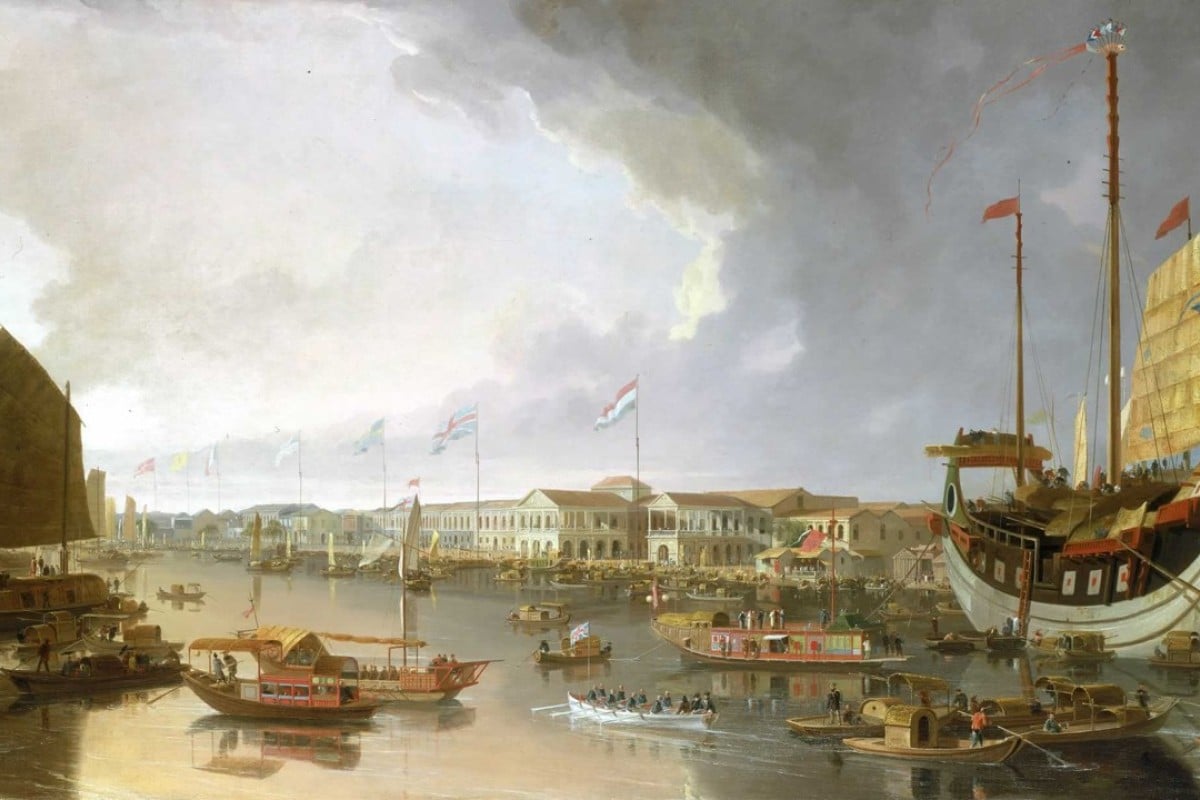
A 19th century painting of Canton harbour and factories.
A faction of British merchants there orchestrated the first opium war, a new book argues.
Merchants of War of Peace: British Knowledge of China in the Making of the Opium War
by Song-Chuan Chen
Hong Kong University Press
3.5 stars
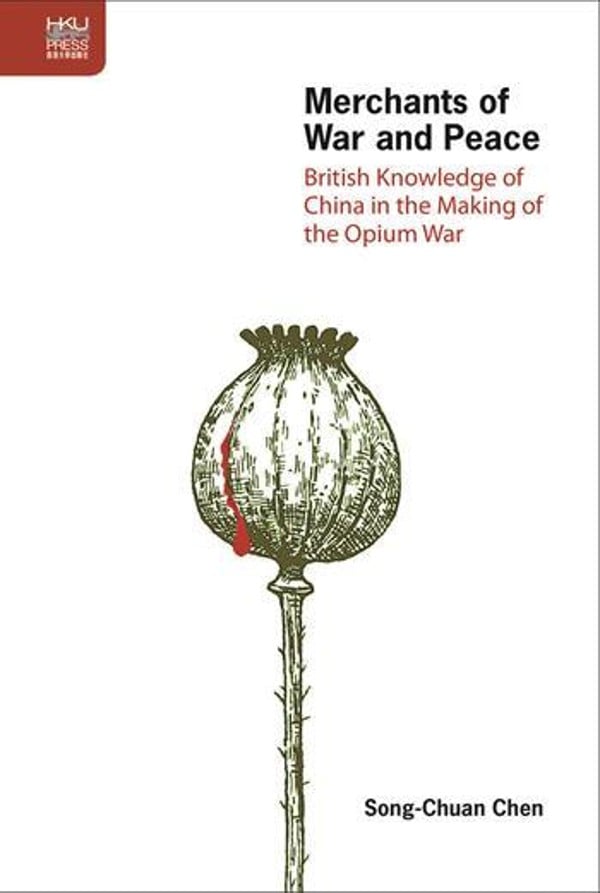
The cover of Song-Chuan Chen’s book.
Until the mid-19th century, European ideas of China came largely from the exaggerated reports of Jesuit missionaries written hundreds of years earlier and from Marco Polo’s mostly fanciful account of his travels in the 13th century.
Both parties had self-promotion in mind, Polo aiming for reflected glory by describing an empire of marvels where he claimed to have held high office, and the Jesuits seeking continued support for their mission by describing a bountiful land where a philosopher king and an administration of literati ruled a vast population ripe for conversion.
Merchants of War of Peace: British Knowledge of China in the Making of the Opium War
by Song-Chuan Chen
Hong Kong University Press
3.5 stars

The cover of Song-Chuan Chen’s book.
Until the mid-19th century, European ideas of China came largely from the exaggerated reports of Jesuit missionaries written hundreds of years earlier and from Marco Polo’s mostly fanciful account of his travels in the 13th century.
Both parties had self-promotion in mind, Polo aiming for reflected glory by describing an empire of marvels where he claimed to have held high office, and the Jesuits seeking continued support for their mission by describing a bountiful land where a philosopher king and an administration of literati ruled a vast population ripe for conversion.
How China played a part in the birth of globalisation in the 16th century
13 Jan 2017
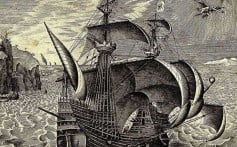
But from the 1830s, a new and supposedly authoritative source of information about China emerged in the form of British merchants who were trading in Canton (Guangzhou). From one frustrated faction in particular came a competing view of a backward, ill-governed China, contemptuous of foreigners, willing to offer insult to British honour, and resistant to the great British crusade for free trade despite the cost to ordinary citizens keen to engage in it. William John Huggins’ 1824 painting The Opium Ships at Lintin (present-day Neilingding Island).
In Merchants of War and Peace, a new history of the events leading up to the opium war of 1839–42, Professor Song-Chuan Chen of Singapore’s Nanyang Technical University offers a new alternative. He ascribes responsibility for the war not to commonplace culprits such as colonialist British foreign policy or Qing dynasty intransigence, but specifically to a coterie of British merchants who came to be known as the “Warlike party”.
During the reign of the Kangxi emperor (1654–1722), European merchants were welcomed with gifts, but by the reign of the Qianlong emperor (1735–96) the mood had changed. The Qing emperors, aliens from beyond the Great Wall to China’s northeast, were sensitive to their outsider status and knew that several previous dynasties had been overthrown by peasant uprisings. Like today’s emperors, they feared the collusion of “hostile foreign forces” with domestic discontent.
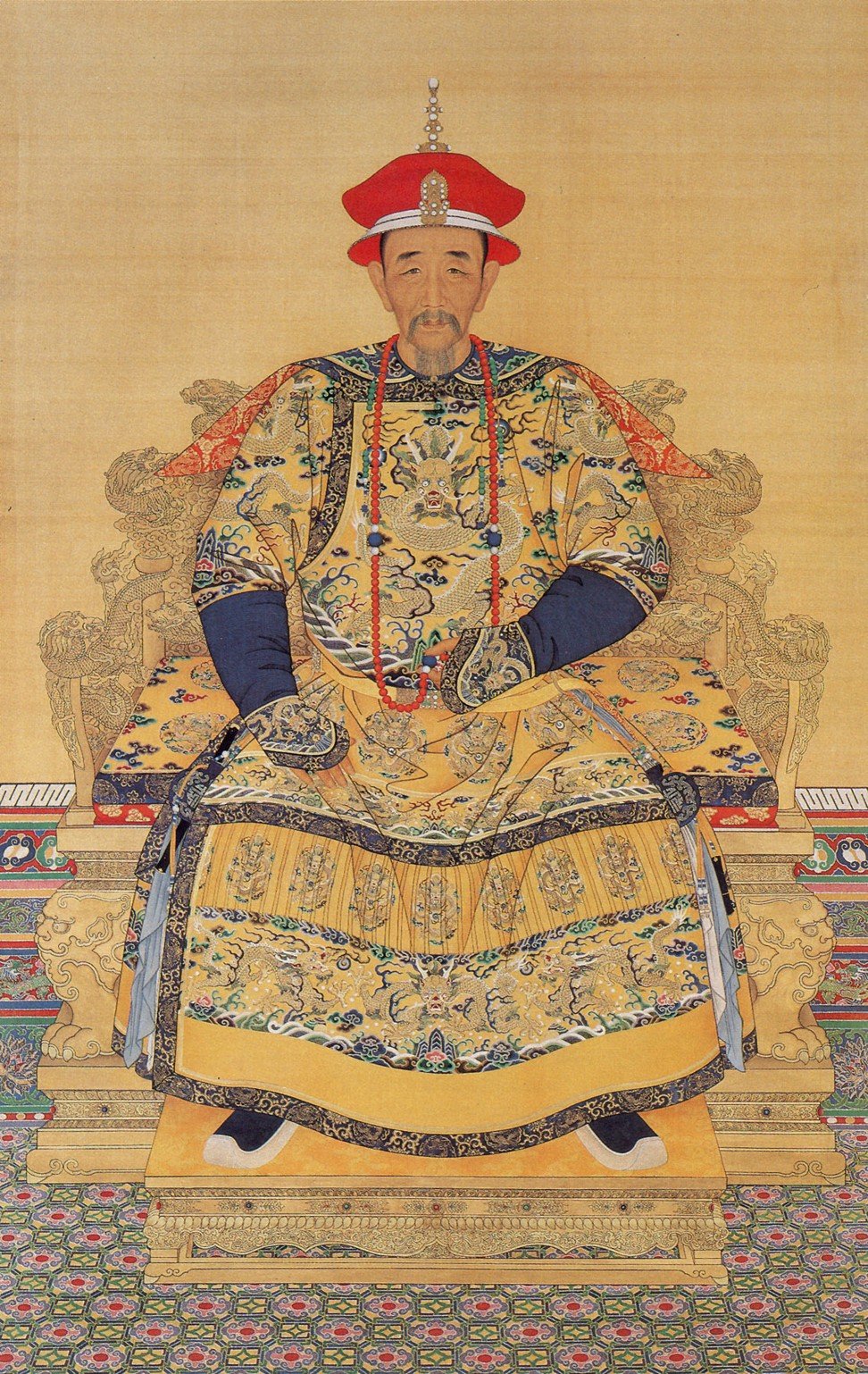
A painting of the Kangxi emperor, who welcomed foreign merchants.
The result was the 1757 decision that all foreign trade should be restricted to one port. The merchants and officials in Canton who lobbied for a monopoly used arguments about Qing security to win the argument.
Just as the British merchants controlled the information about China that reached London, so the Chinese merchants in turn controlled the Qing’s understanding of foreigners. The end result was that a troubled British government in danger of losing a vote of confidence was goaded into a war in which it had little conviction, and the Qing learned too late that the 19th century’s superpower was Britain, not China.
Book review: Opium and Empire, by Richard J. Grace
11 Oct 2014
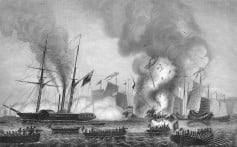
The foreign merchants chafed against high port taxes, pay-offs to innumerable officials, and duties on personal items brought in to China. But as Professor Chen points out: “Officials involved themselves very little in the trade, and neither did they regulate the market. At most, they forbade the exporting of gold and silver, limited the amount of silk foreigners could buy, and banned the import of opium.”
Even these prohibitions were never properly implemented. The merchants’ present-day counterparts would tell them they never had it so good.
Occasional moments of dryness and repetition in Chen’s otherwise lucid narrative are relieved by lively language quoted from struggles in the pages of the Warlike party’s Canton Register and the Pacific party’s Canton Press.
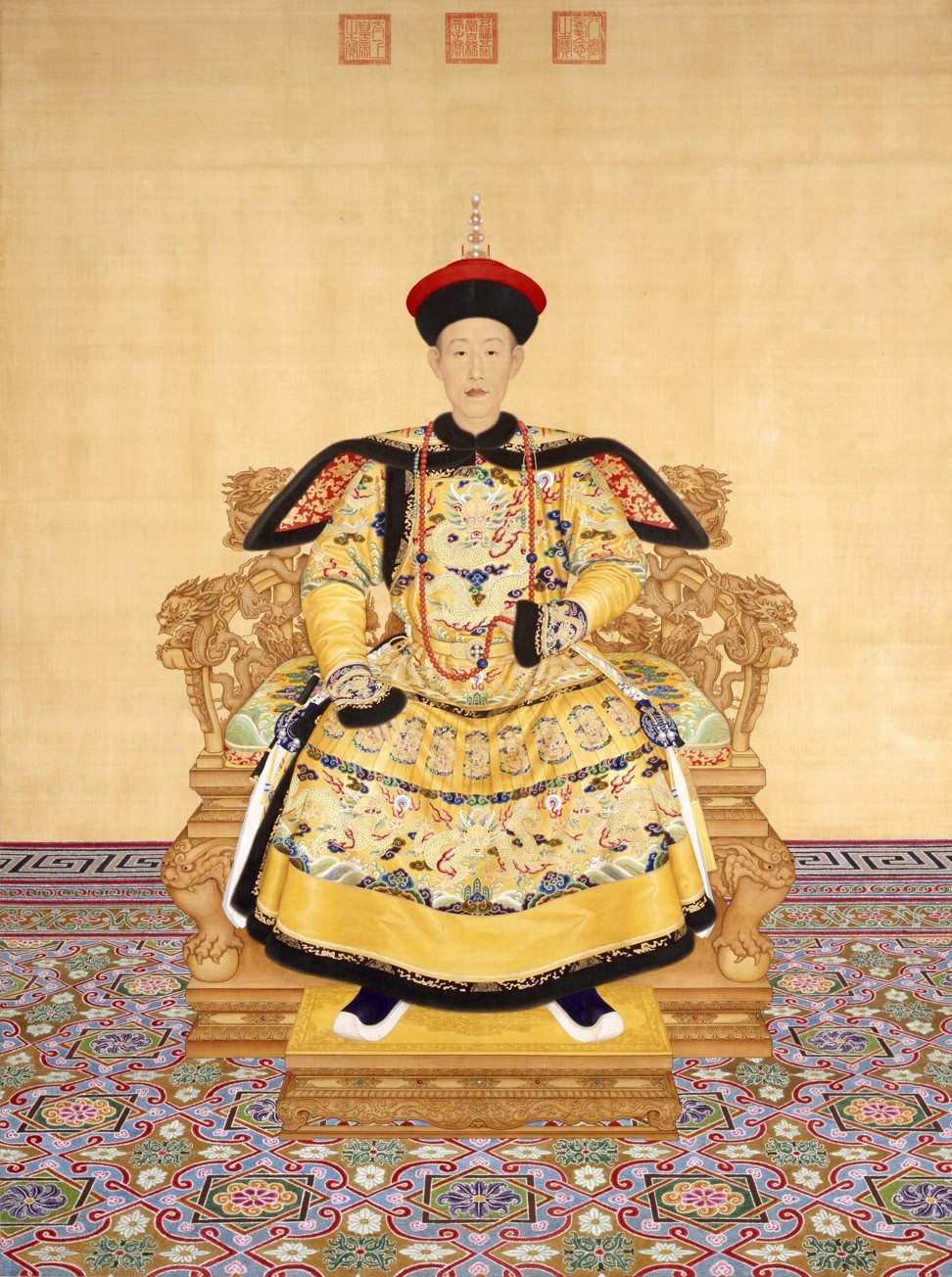
A painting of the Qianlong emperor, under whose rule attitudes towards European merchants changed.
The Pacific party’s morally righteous anti-war view was that China might set what laws on trade it pleased, although this was coupled with the more self-interested observation that conflict always harmed trade. “Deceive ourselves as we please, we are smugglers,” wrote one anonymous contributor to the Canton Press in October 1835.
Abstruse debates about the meaning of yí, used to denote the British in Chinese official correspondence, provided almost comical examples of Old China Hand oneupmanship. Did it mean “foreigners”, “tribes from the east” or “barbarians”? The latter interpretation was favoured by those determined to find insults to British honour as an excuse for military intervention to increase trade.
In remarkably erudite exchanges, foreigners quoted Confucius, Mencius, official documents, and the 11th-century poet Su Shi on one side of the case or the other. But in the end the Warlike party won, its petitioners selling the British government of the day a narrative of wounded honour and national interest which disguised their own commercial imperative.
Eurasian traces great-grandparents’ journey from London slum to Hong Kong and beyond 10 Apr 2017

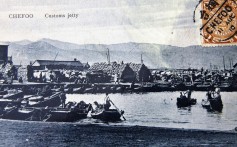
It also provided a successful plan for the conduct of the war based on intelligence gathered during trading trips, thus proving that the Qing had been quite justified to restrict them in the first place.
The merchants of the recently dubbed “nation of shopkeepers” won all their demands: open ports, the right to year-round residence in them, and more.
But it was the British press that coined the now time-honoured but misleading title of “opium war”, and it wasn’t until after further conflict that yí was finally forbidden in official correspondence.
As Merchants of War and Peace shows us, the war of words is still going on.

Peter Neville-Hadley
Former China resident Peter Neville-Hadley is the author of multiple guides and reference works on China, and writes on Chinese culture and on cultural travel in general for assorted periodicals. His work has appeared in the Wall Street Journal, Time Magazine, The Sunday Times (UK), and numerous other newspapers and magazines around the world.

It also provided a successful plan for the conduct of the war based on intelligence gathered during trading trips, thus proving that the Qing had been quite justified to restrict them in the first place.
The merchants of the recently dubbed “nation of shopkeepers” won all their demands: open ports, the right to year-round residence in them, and more.
But it was the British press that coined the now time-honoured but misleading title of “opium war”, and it wasn’t until after further conflict that yí was finally forbidden in official correspondence.
As Merchants of War and Peace shows us, the war of words is still going on.

Peter Neville-Hadley
Former China resident Peter Neville-Hadley is the author of multiple guides and reference works on China, and writes on Chinese culture and on cultural travel in general for assorted periodicals. His work has appeared in the Wall Street Journal, Time Magazine, The Sunday Times (UK), and numerous other newspapers and magazines around the world.
No comments:
Post a Comment